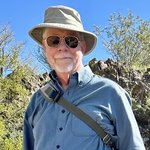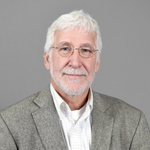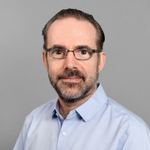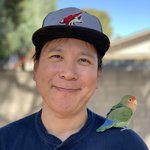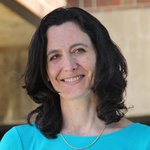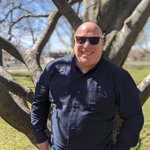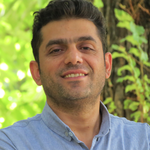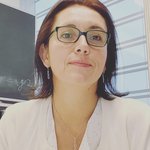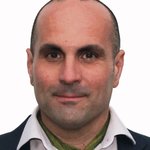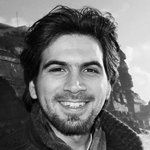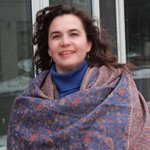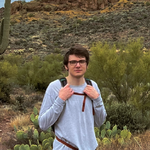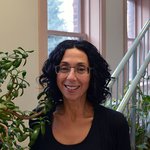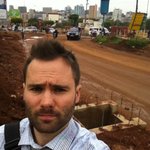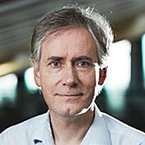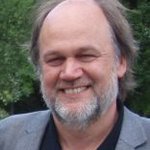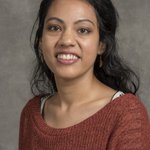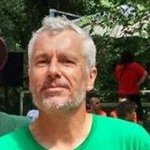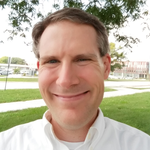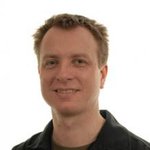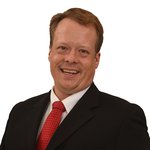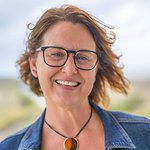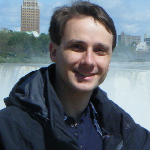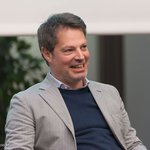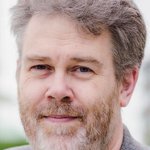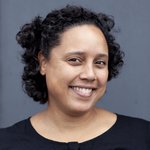People
We are an open community dedicated to developing and fostering good practices for computational modeling and welcome your suggestions and feedback.
Organizations with similar missions include:
- The Software and Data Carpentries teach foundational computational and data science skills through hands on workshops guided by certified instructors.
- Better Scientific Software
- Community Surface Dynamics Modeling System (CSDMS) is a diverse community of experts modeling earth surface processes.
- HydroShare is a collaborative environment for sharing hydrologic data and models for hydrologists to address critical water issues.
- The Open Modeling Foundation is an alliance of modeling organizations dedicated to improving modeling science.
Directorate
Professor, School of Human Evolution & Social Change
Professor, School of Complex Adaptive Systems
Affiliate Professor, School of Earth and Space Exploration
Arizona State University
My interests center around long-term human ecology and landscape dynamics with ongoing projects in the Mediterranean (late Pleistocene through mid-Holocene) and recent work in the American Southwest (Holocene-Archaic). I’ve done fieldwork in Spain, Bosnia, and various locales in North America and have expertise in hunter/gatherer and early farming societies, geoarchaeology, lithic technology, and evolutionary theory, with an emphasis on human/environmental interaction, landscape dynamics, and techno-economic change.
Quantitative methods are critical to archaeological research, and socioecological sciences in general. They are an important focus of my research, especially emphasizing dynamic modeling, spatial technologies (including GIS and remote sensing), statistical analysis, and visualization. I am a member of the open source GRASS GIS international development team that is making cutting edge spatial technologies available to researchers and students around the world.
Ken Buetow is a human genetics and genomics researcher who leverages computational tools to understand complex traits such as cancer, liver disease, and obesity. He currently serves as director of Computational Sciences and Informatics program for Complex Adaptive Systems at Arizona State University (CAS@ASU), is a professor in the School of Life Sciences in ASU’s College of Liberal Arts and Sciences; is a core faculty in the Center for Evolution and Medicine in the Biodesign Institute at ASU; and is director of bioinformatics and data management for the National Biomarker Development Alliance.
Professor Buetow previously served as the Founding Director of the Center for Biomedical Informatics and Information Technology within the National Institutes of Health’s National Cancer Institute.
I am a Professor in the School of Sustainability and the Director of the Center for Behavior, Institutions and the Environment. I want to understand how people solve collective problems at different levels of scale, especially those problems related to sustainability of our environment. Our society experience unprecedented challenged to sustain common resource for future generations at a scale we have never experienced before. What makes groups cooperate? What is the role of information? How does the ecological context affect the social fabric? How do they deal with a changing environment? How can we use these insight to address global challenges? To do this research I combine behavioral experiments, agent-based modeling and case study analysis.
I’ve been building cyberinfrastructure and research software for computational social science and the study of complex adaptive systems at Arizona State University since 2006. Past and current projects include the Digital Archaeological Record, the Virtual Commons, the Social Ecological Systems Library, Synthesizing Knowledge of Past Environments (SKOPE), the Port of Mars, and CoMSES Net, where I serve as co-director and technical lead.
I also work to improve the state of open, transparent, reusable, and reproducible computational science as a Carpentries instructor and maintainer for the Plotting and Programming in Python and Good Enough Practices for Scientific Computing lessons, currently co-chair the Consortium of Scientific Software Registries and Repositories and Open Modeling Foundation Cyberinfrastructure Working Group, and serve on the DataCite Services and Technology Steering Group and CSDMS’s Basic Model Interface open source governance council.
My research interests include collective action, social ecological systems, large-scale software systems engineering, model componentization and coupling, and finding effective ways to promote and facilitate good software engineering practices for reusable, reproducible, and interoperable scientific computation.
Executive Board
Moira Zellner
Moira Zellner’s academic background lies at the intersection of Urban and Regional Planning, Environmental Science, and Complexity. She has served as Principal Investigator and Co-Investigator in interdisciplinary projects examining how specific policy, technological and behavioral factors influence the emergence and impacts of a range of complex socio-ecological systems problems, where interaction effects make responsibilities, burdens, and future pathways unclear. Her research also examines how participatory complex systems modeling with stakeholders and decision-makers can support collaborative policy exploration, social learning, and system-wide transformation. Moira has taught a variety of courses and workshops on complexity-based modeling of socio-ecological systems, for training of researchers, practitioners, and decision-makers in the US and abroad. She has served the academic community spanning across the social and natural sciences, as reviewer of journals and grants and as a member of various scientific organizations. She is dedicated to serving the public through her engaged research and activism.
Applications of agent-based modeling to urban and environmental planning
Participatory modeling
Dale Rothman
I have a BS in Earth Sciences and a PhD in Resource and Environmental Economics. I have more than 25 years of experience doing research and teaching and advising students in systems thinking, scenario development, simulation, and ecological economics. Presently, I am an Associate Professor in the Department of Computational & Data Sciences at George Mason University, and a member of the Center for Social Complexity. I teach the introductory courses on Computational Social Sciences at both the undergraduate and graduate levels, as well as beginning and advanced courses in complex systems, modeling, and simulation. My current research focuses on the use of scenario development and integrated modeling as applied to social-ecological systems. My recent work has focused on applying these to issues related to climate change economics and policy, including new technologies for greenhouse gas removal and solar radiation management.
Hassan Bashiri
I am an assistant professor in the Department of Computer Science at the Hamedan University of Technology, Hamedan, IRAN. I have completed my Ph.D. in Futures Studies (foresight) as an interdisciplinary field, an intersection of social sciences and engineering. My
background comes from computer science. For my Ph.D., I decided to pursue my education in Futures Studies; the field I thought I could apply engineering principles such as requirements engineering, analytical skills, design, modeling, planning, and, test engineering to shape the
desired futures. In PhD, I started the complex systems research field and agent-based modeling with NetLogo. In addition to several publications of papers, I published a book on complex systems titled “Futures Studies in Complex Systems” which was awarded as the book of the year by the Iranian Foresight Association.
Since May 2021, I started a research collaboration with TISSS Lab at the Johannes Gutenberg University Mainz as a project coordinator, the German Research Centre for AI, Human-Centered Multimedia, and the Centre for Research in Social Simulation. The project title is “AI for Assessment” and its objective is to understand the status quo and the future options of AI-based social assessment in public service provisions to help in the creation of improved AI technology for social welfare systems.
On the executive side, I have also various experiences, including head of the department, deputy of the Technology Incubator Center, director of university’s research affairs, and head of the International Scientific Cooperation Office.
Complex Systems, Social Modeling and Simulation
Engineering the Futures
Liliana Perez
My initial training was in cadastre and geodesy (B.Eng from the Distrital University, UD, Colombia). After earning my Master’s degree in Geography (UPTC, Colombia) in 2003, I worked for the “José Benito Vives de Andreis” marine and coastal research institute (INVEMAR) and for the International Center for Tropical Agriculture (CIAT). Three years later, in 2006, I left Colombia to come to Canada, where I began a PhD in Geography with a specialization in modelling complex systems at Simon Fraser University (SFU), under the direction of Dr. Suzana Dragicevic (SAMLab). In my dissertation I examined the topic of spatial and temporal modelling of insect epidemics and their complex behaviours. After obtaining my PhD in 2011, I began postdoctoral studies at the University of British Columbia (2011) and the University of Victoria (2011-2013), where I worked on issues concerning the spatial and temporal relationships between changes in indirect indicators of biodiversity and climate change.
I am an Associate Professor in the Department of Geography at the University of Montreal. My research interests center around the incorporation of artificial intelligence and machine learning techniques into the development Agent-Based Models to solve complex socio-ecological problems in different kind of systems, such as urban, forest and wetland ecosystems.
The core of my research projects aim to learn more about spatial and temporal interactions and relationships driving changes in our world, by focusing on the multidisciplinary nature of geographical information science (GIScience) to investigate the relationships between ecological processes and resulting spatial patterns. I integrate spatial analysis and modeling approaches from geographic information science (GIScience) together with computational intelligence methods and complex systems approaches to provide insights into complex problems such as climate change, landscape ecology and forestry by explicitly representing phenomena in their geographic context.
Specialties: Agent-based modeling, GIScience, Complex socio-environmental systems, Forestry, Ecology
Roger Cremades
Dr. Roger Cremades is a complex systems scientist and heterodox global change economist integrating human-Earth interactions across systems and scales into modular quantitative tools, e.g. connecting drought risks in cities with land use at the river basin scale. He is elected Council member of the Complex Systems Society (2022-2025) and previously served as co-Chair of the Development Team of the Finance and Economics Knowledge-Action Network of Future Earth, the largest global research programme in global change (2020-2022). Roger coordinated research and co-production projects above €1M, and published in top journal like PNAS, Nature Climate Change, and Nature Geoscience. As a scientific modeler in the Social and Ecological Sciences, Roger integrates complex systems concepts into integrated assessment models of global change, with a focus on cities.
The future of CoMSES.Net, in Roger’s vision, is to augment its projection into a hub for discussing state-of-the-art approaches on modeling for the Social and Ecological Sciences, e.g. via bi-annual webinars, so that the Model Library becomes a lighthouse from where all communities developing, sharing, using, and reusing agent-based and other computational models also find valuable discussions to advance their research, education, and computational practice.
Global change, human-Earth interactions, complex systems.
Önder Gürcan
I work as a Senior Researcher at the Centre for Modeling Social Systems (CMSS) at the Norwegian Research Centre (NORCE) sinde 2023. Before, I worked as an Expert Research Engineer at the CEA LIST Institute, Paris-Saclay University in France from 2013 to 2023. I hold a PhD in Artificial Intelligence degree from the Paul Sabatier University (France) and a PhD in Computer Engineering degree from the Ege University (Turkey).
I work in the field of complex adaptive systems, specializing in multi-agent systems, simulation, machine learning, collective intelligence, self-organization, and self-adaptation. I am interested in contributing to innovative projects and research in these domains.
My experience spans across multiple large-scale international research projects in areas such as green urban logistics, blockchain for nuclear applications, autonomous robotics systems and simulation of biological neural networks.
Infrastructure Group
Dr. Dawn Parker is a professor at the University of Waterloo in the School of Planning. Her research focuses on the development of integrated socio-economic and biophysical models of land-use change. Dr. Parker works with agent-based modeling, complexity theory, geographic information systems, and environmental and resource economics. Her current ongoing projects include Waterloo Area Regional Model (WARM) Urban intensification vs. suburban flight, a SSHRC funded development grant that explores the causal relationships between light rail transit and core-area intensification, and the Digging into Data MIRACLE (Mining relationships among variables in large datasets from complex systems) project.
I am a software developer at Arizona State University involved in different projects including CoMSES Net, where I help maintain and work towards increasing the utility we provide for a community of researchers.
Executive Board Alumni
Dr. Lilian Alessa, University of Idaho President’s Professor of Resilient Landscapes in the Landscape Architecture program, is also Co-Director of the University of Idaho Center for Resilient Communities. She conducts extensive research on human adaptation to environmental change through resilient design at landscape scales. Much of her work is funded by the National Science Foundation, including projects awarded the Arctic Observing Network, Intersections of Food, Energy and Water Systems (INFEWS) and the Dynamics of Coupled Natural Human Systems programs. Canadian-born and raised, Alessa received her degrees from the University of British Columbia. She also uses her expertise in social-ecological and technological systems science to develop ways to improve domestic resource security for community well-being, particularly through the incorporation of place-based knowledge. Her work through the Department of Homeland Security’s Center of Excellence, the Arctic Domain Awareness Center, involves developing social-technological methods to monitor and respond to critical environmental changes. Lil is a member of the National Science Foundation’s Advisory Committee for Environmental Research and Education and is on the Science, Technology and Education Advisory Committee for the National Ecological Observing Network (NEON). Professor Alessa also teaches a university landscape architecture capstone course: Resilient Landscapes with Professor Andrew Kliskey. Professor Alessa’s collaborative grant activity with Professor Andrew Kliskey, since coming to the university in 2013, exceeds 7 million USD to date. She has authored over a 100 publications and reports and has led the development of 2 federal climate resilience toolbox assessments, the Arctic Water Resources Vulnerability Index (AWRVI) and the Arctic Adaptation Exchange Portal (AAEP).
Andrew Bell
Andrew Bell (Ph.D. 2010, Michigan) was a Research Fellow in the Environment and Production Technology Division at the International Food Policy Research Institute (IFPRI) in Washington, DC. His current research portfolio focuses on the use of field instruments – such as discrete choice experiments, framed field experiments, randomized control trials – to inform behavior in agent-based models of coupled human-natural systems. Prior to this post, Andrew was a post-doctoral research fellow at The Earth Institute at Columbia University, where he focused on developing applications for paleo-climate histories.
I studied Mathematics at Oxford (1979-1983) then did youth work in inner city areas for the Educational Charity. After teaching in Grenada in the West Indies we came back to the UK, where the first job I could get was in a 6th form college (ages 16-18). They sent me to do post16 PCGE, which was so boring that I also started a part-time PhD. The PhD was started in 1992 and was on the meaning and definition of the idea of “complexity”, which I had been pondering for a few years. Given the growth of the field of complexity from that time, I had great fun reading almost anything in the library but I did finally finish it in 1999. Fortunately I got a job at the Centre for Policy Modelling (CfPM) in 1994 with its founder and direction, Scott Moss. We were doing agent-based social simulation then, but did not know it was called this and did not meet other such simulators for a few years. With Scott Moss we built the CfPM into one of the leading research centres in agent-based social simulation in the world. I became director of the CfPM just before Scott retired, and later became Professor of Social Simulation in 2013. For more about me see http://bruce.edmonds.name or http://cfpm.org.
All aspects of social simulation including: techniques, tools, applications, philosophy, methodology and interesting examples. Understanding complex social systems. Context-dependency and how it affects interaction and cognition. Complexity and how this impacts upon simulation modelling. Social aspects of cognition - or to put it another way - the social embedding of intelligence. Simulating how science works. Integrating qualitative evidence better into ABMs. And everything else.
Volker Grimm currently works at the Department of Ecological Modelling, Helmholtz-Zentrum für Umweltforschung. Volker does research in ecology and biodiversity research.
How to model it: Ecological models, in particular simulation models, often seem to be formulated ad hoc and only poorly analysed. I am therefore interested in strategies and methods for making ecological modelling more coherent and efficient. The ultimate aim is to develop preditive models that provide mechanstic understanding of ecological systems and that are transparent and structurally realistic enough to support environmental decision making.
Pattern-oriented modelling: This is a general strategy of using multiple patterns observed in real systems as multiple criteria for chosing model structure, selecting among alternative submodels, and inversely determining entire sets of unknown model parameters.
Individual-based and agent-based modelling: For many, if not most, ecological questions individual-level aspects can be decisive for explaining system-level behavior. IBM/ABMs allow to represent individual heterogeneity, local interactions, and/or adaptive behaviour
Ecological theory and concepts: I am particularly interested in exploring stability properties like resilience and persistence.
Modelling for ecological applications: Pattern-oriented modelling allows to develop structurally realistic models, which can be used to support decision making and the management of biodiversity and natural resources. Currently, I am involved in the EU project CREAM, where a suite of population models is developed for pesticide risk assessment.
Standards for model communication and formulation: In 2006, we published a general protocol for describing individual- and agent-based models, called the ODD protocol (Overview, Design concepts, details). ODD turned out to be more useful (and needed) than we expected.
Mariam Kiran
Dr. Mariam Kiran is a Research Scientist at LBNL, with roles at ESnet and Computational Research Division. Her current research focuses on deep reinforcement learning techniques and multi-agent applications to optimize control of system architectures such as HPC grids, high-speed networks and Cloud infrastructures.. Her work involves optimization of QoS, performance using parallelization algorithms and software engineering principles to solve complex data intensive problems such as large-scale complex decision-making. Over the years, she has been working with biologists, economists, social scientists, building tools and performing optimization of architectures for multiple problems in their domain.
Christophe Le Page currently works at the Centre de Coopération Internationale en Recherche Agronomique pour le Développement (CIRAD). Christophe does research on participatory modelling of the interactions between agriculture and the environment, focusing more specifically on the relationships among stakeholders about the management of natural renewable resources. Christophe is designing and using interactive agent-based simulation and role-playing games. He is an active member of the Companion Modelling research group.
Agent-based simulations and role-playing games in the field of renewable resource management.
John Murphy
My research uses modeling to understand complex coupled human and natural systems, and can be generally described as computational social science. I am especially interested in modeling water management systems, in both archaeological and contemporary contexts. I have previously developed a framework for modeling general archaeological complex systems, and applied this to the specific case of the Hohokam in southern Arizona. I am currently engaged in research in data mining to understand contemporary water management strategies in the U.S. southwest and in several locations in Alaska. I am also a developer for the Repast HPC toolkit, an agent-based modeling toolkit specifically for high-performance computing platforms, and maintain an interest in the philosophy of science underlying our use of models as a means to approach complex systems. I am currently serving as Communications Officer for the Computational Social Science Society of the Americas.
Gary Polhill did a degree in Artificial Intelligence and a PhD in Neural Networks before spending 18 months in industry as a professional programmer. Since 1997 he has been working at the Institute on agent-based modelling of human-natural systems, and has worked on various international and interdisciplinary projects using agent-based modelling to study agricultural systems, lifestyles, and transitions to more sustainable ways of living. In 2016, he was elected President of the European Social Simulation Association, and was The James Hutton Institute’s 2017 Science Challenge Leader on Developing Technical and Social Innovations that Support Sustainable and Resilient Communities.
William Rand
The big picture question driving my research is how do complex systems of interactions among individuals / agents result in emergent properties and how do those emergent properties feedback to affect individual / agent decisions. I have explored this big picture question in a number of different contexts including the evolution of cooperation, suburban sprawl, traffic patterns, financial systems, land-use and land-change in urban systems, and most recently social media. For all of these explorations, I employ the tools of complex systems, most importantly agent-based modeling.
My current research focus is on understanding the dynamics of social media, examining how concepts like information, authority, influence and trust diffuse in these new media formats. This allows us to ask questions such as who do users trust to provide them with the information that they want? Which entities have the greatest influence on social media users? How do fads and fashions arise in social media? What happens when time is critical to the diffusion process such as an in a natural disaster? I have employed agent-based modeling, machine learning, geographic information systems, and network analysis to understand and start to answer these questions.
Kimberly Rogers
Dr. Kimberly G. Rogers studies the coupled human-natural processes shaping coastal environments. She obtained a B.Sc. in Geological Sciences from the University of Texas at Austin and began her graduate studies on Long Island at Stony Brook University’s School of Marine and Atmospheric Sciences. Rogers completed her Ph.D. at Vanderbilt University, where she specialized in nearshore and coastal sediment transport. She was a postdoctoral scholar and research associate at the Institute for Arctic and Alpine Research at the University of Colorado Boulder. In 2014, her foundation in the physical sciences was augmented by training in Environmental Anthropology at Indiana University Bloomington through an NSF Science, Engineering, and Education for Sustainability (SEES) Fellowship.
Rogers’s research is broadly interdisciplinary and examines evolving sediment dynamics at the land-sea boundary, principally within the rapidly developing river deltas of South Asia. As deltas are some of the most densely populated coastal regions on earth, she incorporates social science methods to examine how institutions — particularly those governing land use and built infrastructure — influence the flow of water and sediment in coastal areas. She integrates quantitative and qualitative approaches in her work, such as direct measurement and geochemical fingerprinting of sediment transport phenomena, agent-based modeling, institutional and geospatial analyses, and ethnographic survey techniques. Risk holder collaboration is an integral part of her research philosophy and she is committed to co-production and capacity building in her projects. Her work has gained recognition from policy influencers such as the World Bank, USAID, and the US Embassy Bangladesh and has been featured in popular media outlets such as Slate and Environmental Health Perspectives.
Forrest Stonedahl
My primary research interests lie at the intersection of two fields: evolutionary computation and multi-agent systems. I am specifically interested in how evolutionary search algorithms can be used to help people understand and analyze agent-based models of complex systems (e.g., flocking birds, traffic jams, or how information diffuses across social networks). My secondary research interests broadly span the areas of artificial life, multi-agent robotics, cognitive/learning science, design of multi-agent modeling environments. I enjoy interdisciplinary research, and in pursuit of the aforementioned topics, I have been involved in application areas from archeology to zoology, from linguistics to marketing, and from urban growth patterns to materials science. I am also very interested in creative approaches to computer science and complex systems education, and have published work on the use of multi-agent simulation as a vehicle for introducing students to computer science.
It is my philosophy that theoretical research should be inspired by real-world problems, and conversely, that theoretical results should inform and enhance practice in the field. Accordingly, I view tool building as a vital practice that is complementary to theoretical and methodological research. Throughout my own work I have contributed to the research community by developing several practical software tools, including BehaviorSearch (http://www.behaviorsearch.org/)
Flaminio Squazzoni
Flaminio Squazzoni is Full Professor of Sociology at the Department of Social and Political Sciences of the University of Milan and director of BEHAVE. He teaches “Sociology” to undergraduate students, “Behavioural Sociology” to master students and “Behavioural Game Theory” to PhD students. Untill November 2018, he has been Associate Professor of Economic Sociology at the Department of Economics and Management of the University of Brescia, where he led the GECS-Research Group on Experimental and Computational Sociology.
He is editor of JASSS-Journal of Artificial Societies and Social Simulation, co-editor of Sociologica -International Journal for Sociological Debate and member of the editorial boards of Research Integrity and Peer Review and Sistemi Intelligenti. He is advisory editor of the Wiley Series in Computational and Quantitative Social Science and the Springer Series in Computational Social Science and member of the advisory board of ING’s ThinkForward Initiative. He is former President of the European Social Simulation Association (Sept 2012/Sept 2016, since 2010 member of the Management Committee) and former Director of the NASP ESLS PhD Programme in Economic Sociology and Labour Studies (2015-2016).
His fields of research are behavioural sociology, economic sociology and sociology of science, with a particular interest on the effect of social norms and institutions on cooperation in decentralised, large-scale social systems. His research has a methodological focus, which lies in the intersection of experimental (lab) and computational (agent-based modelling) research.
Edmund Chattoe-Brown
I have been involved in agent-based modelling since the early nineties with a consistent attention to methdological improvement, institutional development and empirical issues. My mission is that ABM should be a routinely accepted research method (with a robust methodology) across the social sciences. To this end I have built diverse models and participated in research projects across economics, law, medicine, psychology, anthropology and sociology. I took a DPhil in economics on adaptive firm behaviour and then was involved in two research projects on money management and farmer decision making. Since 2006 I have worked at the Department of Sociology (now the School of Media, Communication and Sociology) at the University of Leicester. I was involved in the founding of JASSS and (more recently RofASSS https://rofasss.org) and have regularly served on the review panels for international conferences in the ABM community.
Decision making, research design and research methods, social networks, innovation diffusion, secondhand markets.
Nanda Wijermans
In my research I focus on understanding human behaviour in group(s) as a part of a complex (social) system. My research can be characterised by the overall question: ‘How does group or collective behaviour arise or change given its social and physical context?‘ More specifically, I have engaged with: ‘How is (individual) human behaviour affected by being in a crowd?’, ‘Why do some groups (cooperatively) use their resources sustainably, whereas others do not?‘, ‘What is the role of (often implicit simplistic) assumptions regarding human behaviour for science and/or management?’
To address these questions, I use computational simulations to integrate and reflect synthesised knowledge from literature, empirics and experts. Models, simulation and data analysis are my tools for gaining a deeper understanding of the mechanisms underlying such systems. More specifically, I work with agent-based modelling (ABM), simulation experiments and data analysis of large datasets. Apart from crowd modelling and social-ecological modelling, I also develop methodological tools to analyse social simulation data and combining ABM with other methods, such as behavioural experiments.
